
The parliamentary seat of Pagoh, located downstream of the Muar river, has been an Umno fortress since its inception in 1974.
Due to the certainty of BN's victory there over the years, the constituency had often been overshadowed by battleground seats.
However, that changed when its MP Muhyiddin Yassin was sacked from Umno last year for dissenting against Prime Minister Najib Abdul Razak, who is embroiled in the 1MDB scandal.
Muhyiddin, now Parti Pribumi Bersatu Malaysia (Bersatu) president, will seek to end BN's winning streak in Pagoh in the 14th general election, but he will not be the first sacked deputy prime minister to attempt the feat.
There are some parallels between Pagoh and the once BN fortress of Permatang Pauh, which became a PKR (then Parti Keadilan Nasional) stronghold, following the sacking of Anwar Ibrahim as deputy prime minister in 1998.
Muhyiddin, like Anwar, is the second BN MP to have served their Malay-majority constituencies since the seats were created.
Both had also served for lengthy periods before their dismissal, with Anwar having been Permatang Pauh MP for 17 years. Muhyiddin, excluding a two-term gap when he was Johor menteri besar, had served 29 years as Pagoh MP when he was sacked.
If Muhyiddin can succeed in replicating Anwar's success, who did so through his wife Wan Azizah Wan Ismail, he will be able to do more damage by punching a hole in BN's "sphere of power".
Pagoh and its neighbouring parliamentary constituency - with the exception of opposition-held Bakri - have been known to be a stepping stone for BN leaders to acquire a seat in Putrajaya.
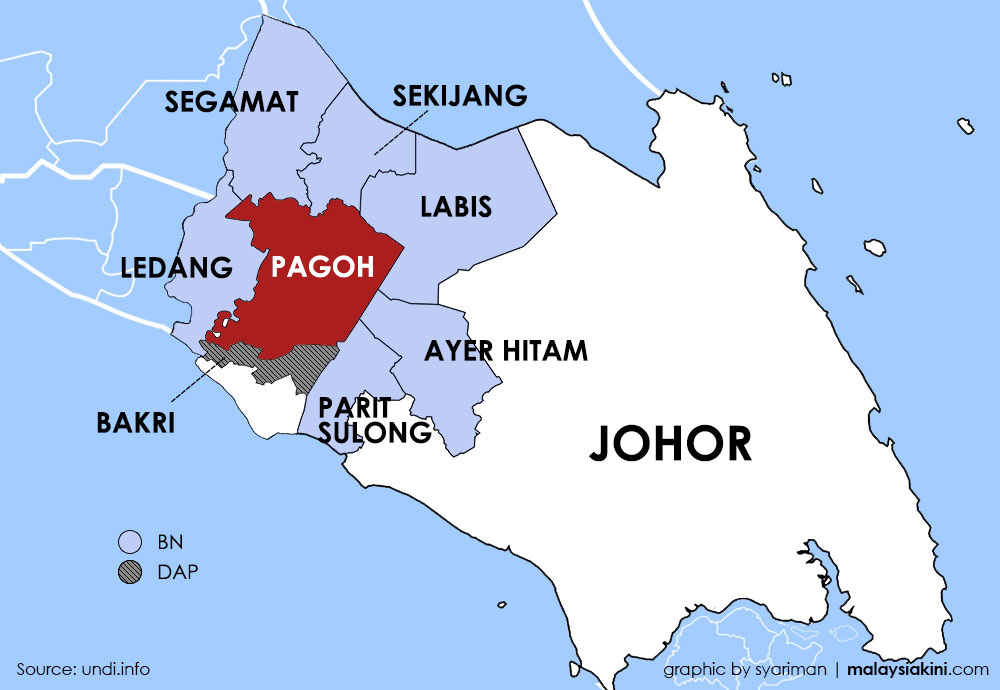
Four out of six BN parliamentary seats surrounding Pagoh see their incumbent holding the position of minister or deputy minister in the federal government.
The BN seats surrounding Pagoh in clockwise order are Ledang (Natural Resource and Environment Deputy Minister Hamim Samuri), Segamat (Health Minister S Subramaniam), Sekijang (Anuar Abd Manap), Labis (International Trade and Industry Deputy Minister Chua Tee Yong), Ayer Hitam (Minister in the Prime Minister's Department Wee Ka Siong), Parit Sulong (Noraini Ahmad).
For many who call Pagoh home, they have been traditionally involved in the agriculture and plantations sector due to the constituency's proximity to the Muar river.
They also remember Muhyiddin as the man who used his influence as deputy prime minister and education minister to transform the constituency into a northern education hub for Johor through Bandar Universiti Pagoh.
The new township has attracted three universities and one polytechnic college, namely International Islamic University of Malaysia, Universiti Tun Hussein Onn, Universiti Teknologi Malaysia and Politeknik Malaysia Tun Syed Nasir.
Bandar Universiti Pagoh, located just within five kilometres of the North-South expressway, is also expected to play host to the Malaysia-Singapore High Speed Rail terminal for Muar.
Muhyiddin's legacy
Umno grassroots such as Felda Maokil 4 Umno branch secretary Miskam Salman (photo) said they will not leave their party for Muhyiddin but acknowledged his contributions.
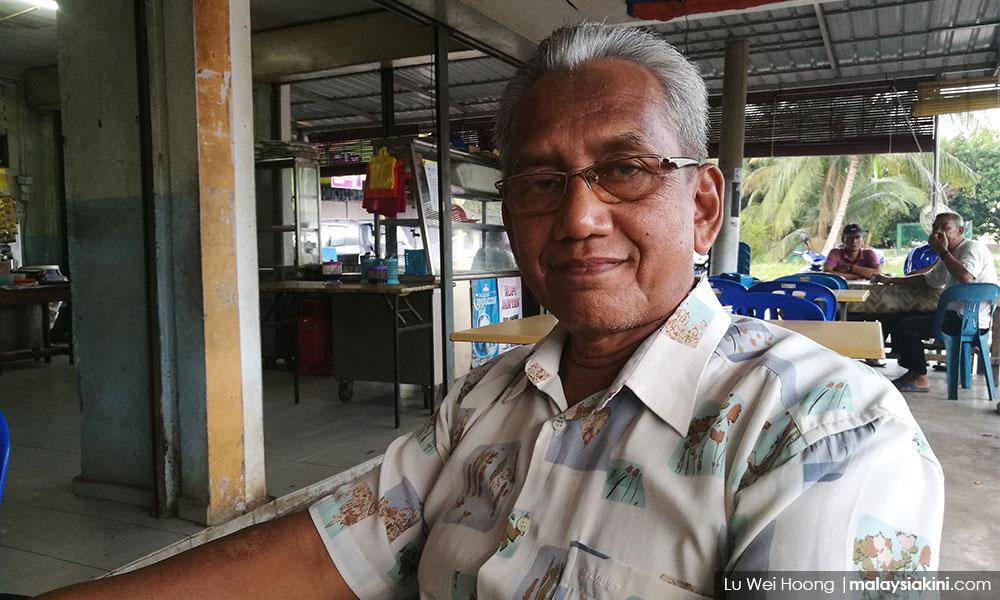
"If you see the SMK Maokill Hall, it's huge and was built for RM2.5 million. There was also an allocation of RM800,000 for multi-purpose halls and mosques in 2015. All these were due to Muhyiddin," he told Malaysiakiniat a local coffee shop.
It is for this reason, Johor Menteri Besar Khaled Nordin, who is also the state Umno chief, had avoided directly attacking Muhyiddin, for fear of pushing disgruntled Umno members over the edge and joining Bersatu.
Instead, he had during the Pagoh Umno division meeting last month, urged members to move beyond the nostalgia.
According to local Umno sources, 700 out of 23,000 Umno members in Pagoh had joined Bersatu.
However, Bersatu operatives in Pagoh told Malaysiakinithey have recruited at least 4,000 Umno members to their side.
Having attracted almost 20 percent of Umno members is unlikely sufficient to ensure Bersatu's victory in Pagoh but coupled with other opposition supporters, Bersatu can for the first time mount a serious challenge in the constituency.
Under BN, Muhyiddin had won Pagoh with a 12,842-vote majority during the last general election.
The key will be the bulk of members still loyal to Umno but may be disgruntled at the treatment of Muhyiddin, whom many still respect.
According to the first quarter electoral roll of 2016, Pagoh has a total of 46,968 registered voters comprising 66 percent Malays, 30 percent Chinese and four percent Indian.
At the state level, Jorak has a total of 25,555 voters, 59 percent who are Malays, 35 percent are Chinese and five percent are Indian. Bukit Serampang has a total of 21,413 voters comprising 71 percent Malays, 26 percent Chinese and two percent Indian.
For Bersatu, Jorak will be the key to capturing Pagoh while for Umno, Bukit Serampang is the answer. Both are state constituencies within Pagoh.
Jorak is a relatively urbanised constituency where Bandar Universiti Pagoh is also located. Its state assemblyperson Sharuddin Md Salleh had defected to Bersatu, so have several grassroots leaders.
The more substantial number of non-Malay voters in Jorak compared to Bukit Serampang will also work in the opposition's favour.
For this reason, Pagoh Bersatu has poured its resources into Jorak.
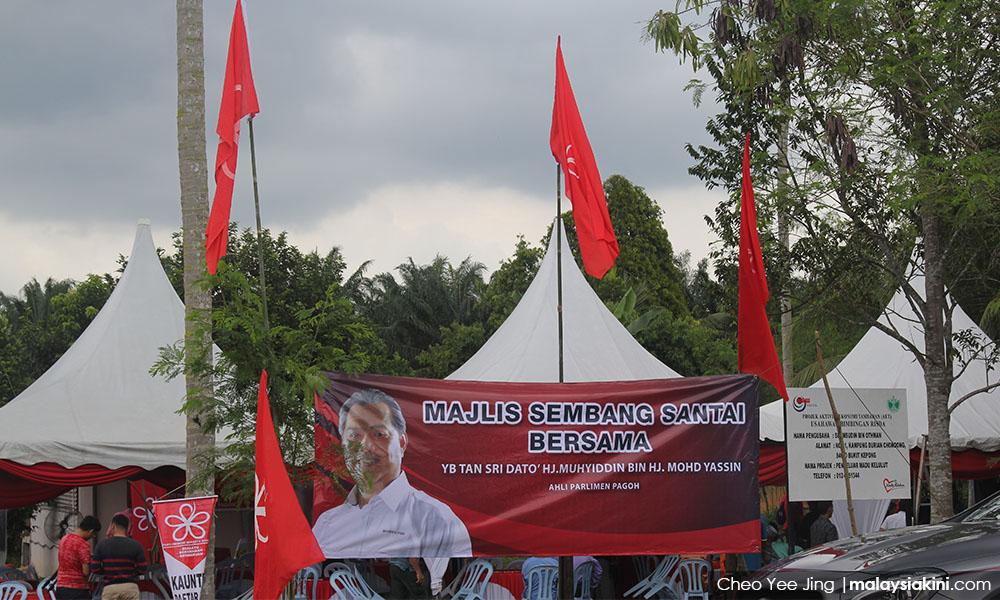
Bersatu's strength in Jorak is also evident through its ceramahs, one which attracted some 100 people at the Kampung Brohol community hall last month.
Unlike opposition ceramahs in urban centres which can attract thousands, organising ceramahs in Malay villages traditionally controlled by Umno is a near impossibility as local facilities are controlled by the village committee.
Bersatu's ability to openly organise a ceramah in a Malay village, not facing hostile reaction and even attracting a substantial crowd, is considered a feat.
Umno Wanita chief Noriah Mahat, during the Pagoh Umno division meeting, had also acknowledged the party's weakness in Jorak.
"We don't have a Jorak representative. He ran away (to Bersatu). I ask that YB Ismail visit Jorak more frequently and bring more development there," she said.
Noriah was referring to Ismail Mohamed, who is the neighbouring Bukit Serampang assemblyperson a first-term Johor exco member.
Following Muhyiddin's sacking and Sharuddin's departure, Ismail has used his influence as an exco to lay the groundwork for Umno in Pagoh.
Ismail's base is in Bukit Serampang, where in June, Muhyiddin was disallowedfrom organising a buka puasa function at local mosque where he had done so for the last 30 years.
Despite Ismail's resources as a state government exco, there are still murmurs of discontent due to falling commodity prices.
Commodity prices and electioneering
A local Umno branch leader, who is also rubber smallholder in Bukit Serampang, lamented that that he was facing double whammy from GST.
"The first GST is the Goods and Services Tax, the second GST is Getah and Sawit Turun (price of rubber and palm oil falling)," he told Malaysiakini.
The man, who did not want to be named, said he could fetch RM4 per kilogram of raw rubber in January but the same amount can now only get him RM2.25. Oil palm fruit prices have also declined.
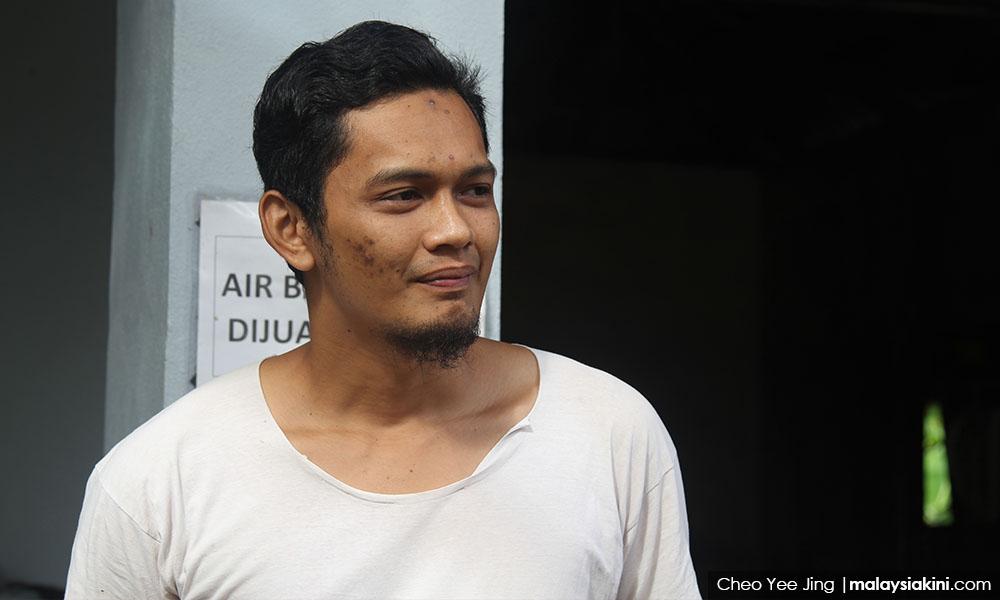
Local rubber dealer Mohd Nazuan Mohd Rostam (photo) admitted that his suppliers had been grumbling about falling commodity prices and sympathised with them.
"Rubber prices are not keeping pace with the increase in prices of goods. Rubber prices need to be much higher, everything is expensive now," the 32-year-old told Malaysiakini as he collected rubber milk from rubber tappers.
According to the Malaysian Rubber Exchange, a kilogram of Standard Malaysian Rubber 20 (SMR20) can fetch an average RM9.57.The same amount can fetch an average of RM6.44 in August.
Likewise, according to the Malaysian Palm Oil Board, crude palm oil could fetch an average of RM3,268 per tonne in January. The average price was RM2,629 per tonne in July.
Mindful of Bersatu's ability to capitalise on voters' disgruntlement due to falling commodity prices, Umno has leveraged on the Felda mechanism.
Bukit Serampang is home to some 10,000 Felda settlers, comprising around 46 percent of total voters in the constituency.
The government has made sure to keep them happy despite falling commodity prices through cash aids and allowances, thus Felda settlers do not feel the pinch as much as regular Malay village smallholders do.
One such beneficiary is Miskam, who is the first generation Felda settler in Felda Maokil.
"Even in a gap period, because I'm replanting my oil palm, I can still get a monthly replanting of allowance RM1,300 from the government, I don't have to stress out," he said.
As Miskam shared the many benefits he had enjoyed under Felda, with or without Muhyiddin, the local coffee shop owner chipped in, declaring that around 70 percent of his customers are still supporting Umno.
Scandals like those in 1MDB and Felda Global Ventures, they said, doesn't overshadow the perks they receive.
It is from such a base in Bukit Serampang where Ismail, the Johor exco in charge of agriculture, draws his strength and there is now speculations that he will take on Muhyiddin in Pagoh during the 14th General Election.
Ismail, now the acting Pagoh Umno chief, had in the early stages professed support for Muhyiddin when his boss was sacked.
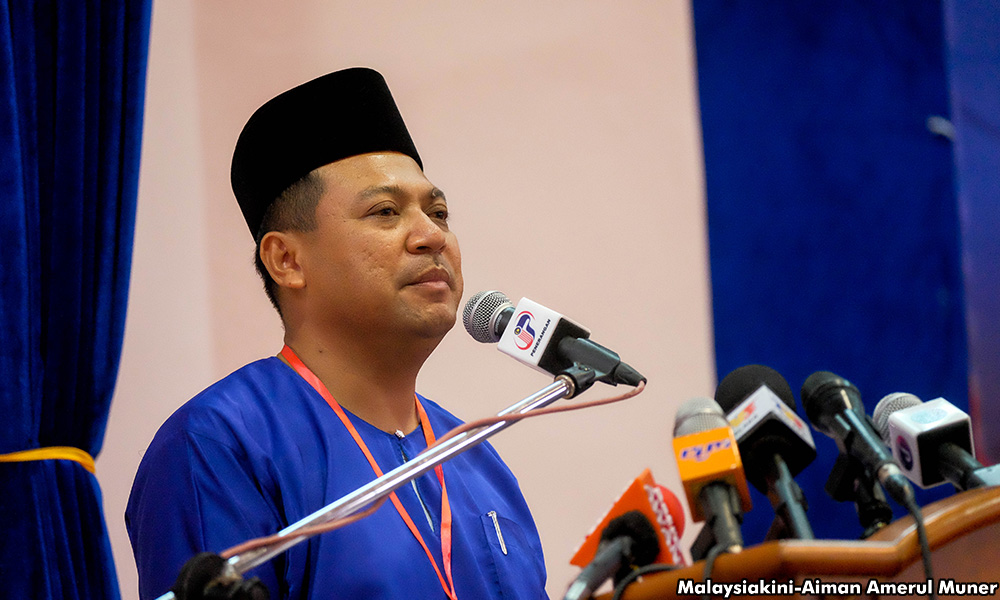
However, Muhyiddin forming a new Umno splinter party was a step too far that Ismail was not willing to take.
Muhyiddin's challengers
Ismail had since filled the void left behind by Muhyiddin for Umno and won the confidence of being considered as a potential candidate for Pagoh.
Being an exco member, Ismail winning Pagoh will likely see him securing a position in the federal government. But it also meant that he had more to lose.
Another possible candidate whose name has been bandied around has been Pagoh Umno Wanita chief Noriah Mahat.
Interestingly, the exodus from Umno to Bersatu in Pagoh has been disproportionately male. Bersatu operatives told Malaysiakini men made up of 65 percent of their membership in the division.
With their departure, Pagoh Umno Wanita leaders had stepped in, filling the void in the main body from the grassroots to the division level.
"I am thankful to all Umno Wanita branch chiefs and leaders for not joining the opposition or Bersatu," she declared during the party's divisional delegates' meeting last month.
Noriah (photo), 65 and a two-term senator, noted that some branches would not even have enough quorum to hold their meetings had it not been for women members remaining loyal to Umno.
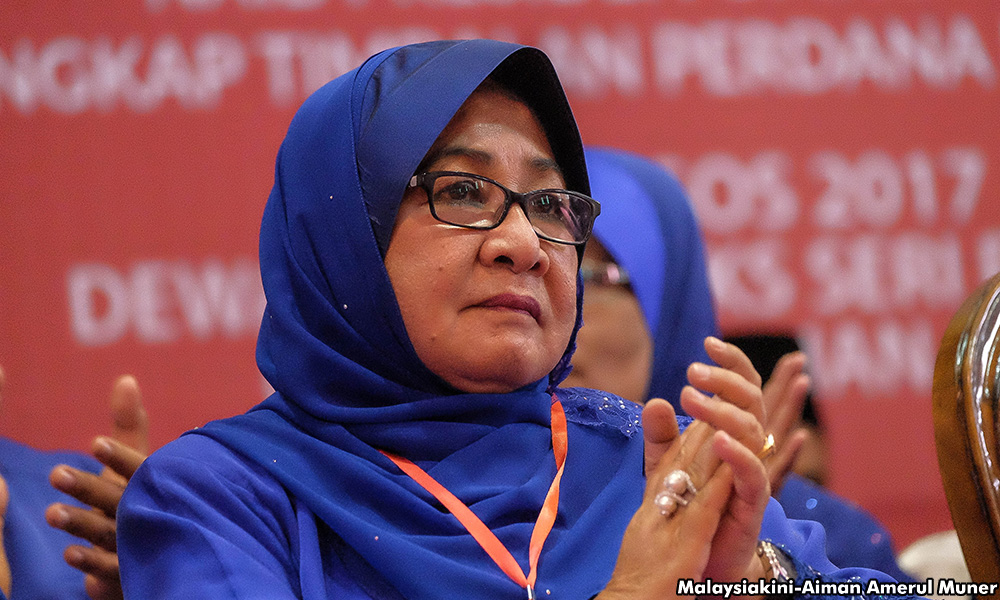

Noriah, an Umno veteran, said she was amongst the first batch of members to join Umno Baru under then Umno president Dr Mahathir Mohamad when Umno was deregistered in 1988 and she intends to stay put.
Her influence has also grown due to the void from the exodus to Bersatu.
Having served her maximum term as a senator and not occupying any government positions, Noriah is seen as a suitable candidate to potentially become a "giant slayer" against Muhyiddin. It will also be her only key to the federal government.
Come the 14th general election, Pagoh is set to become focal point.
The battle for Pagoh is expected to be a tough one and its outcome will likely make electoral history but the idea that there will be a real battle in the once BN bastion is in itself historic. -Mkini



No comments:
Post a Comment
Note: Only a member of this blog may post a comment.